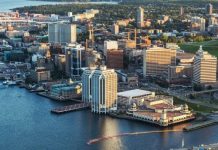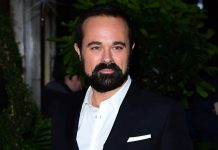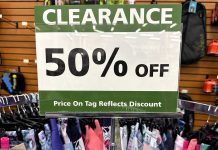Today’s animated Doodle celebrates the life and work of English abstract sculptor Dame Barbara Hepworth.
Born 10 January in Wakefield, Yorkshire, the eldest child of Herbert and Gertrude (née Johnson) Hepworth. Her father is a civil engineer for the West Riding County Council, who in 1921 became County Surveyor. As a girl, Hepworth accompanies him on the car journeys he makes all over the West Riding of Yorkshire in the course of his work.
1909–20
Attends Wakefield Girls’ High School. Music scholarship, 1915. Open Scholarship, 1917. Summer holidays at Robin Hood’s Bay, near Whitby, North Yorkshire.
1920–21
Leeds School of Art; Henry Moore is a fellow student.
1921–24
Studies sculpture at the Royal College of Art, London. Together with Moore and other students at the College, makes occasional trips to Paris. Awarded the diploma of the Royal College of Art in the summer of 1923; stays on an extra year to compete for the Prix de Rome (John Skeaping is the winner).
1924
Awarded a West Riding Scholarship for one year’s travel abroad. October, Hepworth travels to Italy. Based in Florence, she spends the first months studying Romanesque and early Renaissance art and architecture in Tuscany. November, short visit to Rome.
1925
In Siena, February–March. Marries sculptor John Skeaping in the Palazzo Vecchio, Florence, in May. They stay in Florence for three months, then live at the British School in Rome, where Skeaping is a Rome Scholar in Sculpture, until November 1926. Hepworth learns to carve marble from the master-carver Giovanni Ardini. Visits Carrara.
1926
November, Hepworth and Skeaping return to London due to Skeaping’s ill-health.
1927
Studio exhibition with Skeaping at their flat in St Ann’s Terrace, St John’s Wood, in December. The collector George Eumorfopoulos buys Seated Figure and Mother and Child.
1928
January, Hepworth and Skeaping move to 7 The Mall, Parkhill Road, Hampstead. Hepworth would remain in this studio until 1939. June, exhibition at the Beaux Arts Gallery, London, shared with John Skeaping and William Morgan.
1929
3 August, birth of son, Paul Skeaping.
1930
October–November, joint exhibition with John Skeaping at Arthur Tooth & Sons’ Galleries, London
1931
Meets the painter Ben Nicholson. Summer holiday at Happisburgh on the Norfolk coast with Skeaping, Nicholson, Henry and Irina Moore, Ivon Hitchens. Separation from Skeaping (they are divorced in March 1933).
1932
Shows with the Seven and Five Society; Hepworth is a member until the group is dissolved in 1935. Spring, Ben Nicholson begins to live and work with Hepworth in the Mall studio. Hepworth and Nicholson seriously consider moving to Paris. August, short visit to Dieppe with Nicholson. November–December, shared exhibition with Nicholson at Arthur Tooth & Sons’ Galleries, London (catalogue foreword on Hepworth by Herbert Read). Hepworth’s first holed sculpture, Pierced Form, probably carved in 1932, is exhibited there with the title Abstraction (it was subsequently destroyed in the war).
1933
In France with Nicholson in April, Hepworth meets Brancusi at his studio in Paris, visits Arp’s studio at Meudon (Arp himself is absent) and travels to Avignon and Saint-Rémy-de-Provence; on their return, they visit Picasso in his Paris studio. Invited by Herbin to become a member of the Paris-based group Abstraction-Création, with which Hepworth exhibits in 1934. September, short visit to Dieppe with Nicholson to see Braque at nearby Varengeville.
October–November, shared exhibition with Ben Nicholson at Alex. Reid & Lefevre Ltd., London.
1934
April, exhibition of the group Unit One, of which both Hepworth and Nicholson are members, at the Mayor Gallery, London. This coincides with the publication of Unit One: the Modern Movement in English Architecture, Painting and Sculpture, edited by Herbert Read. Hepworth contributes a statement to the book. The exhibition travels to Liverpool, Manchester, Hanley, Derby, Swansea and Belfast. October 3, birth of triplets, Simon, Rachel and Sarah Hepworth-Nicholson.
1935
In Paris in January, meets Mondrian and Kandinsky. Travels to Luzern with Nicholson in February for the opening of the exhibition Thèse Antithèse Synthèse. Meets Naum Gabo. October, final ‘7 & 5′ exhibition at Zwemmer Gallery, London. Begins to contribute works to anti-fascist exhibitions.
1936
Abstract & Concrete exhibition opens in Oxford in February. It includes the work of Mondrian, Kandinsky, Arp, Giacometti, Miró, Calder, Moholy-Nagy, Hélion, Nicholson, Hepworth, Moore and Gabo and travels to Liverpool, Newcastle, London (Alex. Reid & Lefevre Ltd) and Cambridge. Meets Arp in London on the occasion of the International Surrealist exhibition. The Museum of Modern Art, New York, acquires its first Hepworth, Discs in Echelon (1935, darkwood). Friendship with Moholy-Nagy, Gropius, Erni, Ozenfant.
1937
Publication of Circle: International Survey of Constructive Art, edited by the architect J.L. Martin, Ben Nicholson and the sculptor Naum Gabo, and designed by Hepworth and Sadie Martin. Hepworth’s text Sculpture is included in it. Publication of Circle coincides with the exhibition Constructive Art at the London Gallery. July–August, short holiday with Nicholson in Varengeville, near Dieppe, at the invitation of Alexander Calder; they see Braque and Miró there. October, first one-person exhibition held at Alex. Reid & Lefevre, London (catalogue introduction by the physicist J.D. Bernal).
1938
April, shows in the Abstract Art exhibition at the Stedelijk Museum, Amsterdam. September, Mondrian arrives in London: Nicholson and Hepworth help him to find a room near them in Parkhill Road, where he stays until his departure for New York in 1940. Marriage to Ben Nicholson in November, following his divorce from his first wife, Winifred. At this time, Hepworth is interested in ideas for large-scale works: her first large carving is Monumental Stele, 1936. The Project (Monument to the Spanish War) (1938–9, wood, 178 cm, destroyed in war) reflects her commitment to the Republican cause.
1939
Participates in the exhibitions Living Art in England at the London Gallery and Abstract and Concrete Art at Guggenheim Jeune, London. Just before the outbreak of war, on 25 August, Hepworth and Nicholson arrive in St Ives, Cornwall, with their triplets, at the invitation of Adrian Stokes and his wife Margaret Mellis. Naum and Miriam Gabo soon join them, and stay until 1946. After Christmas, the Hepworth-Nicholson family moves to Dunluce, a nearby house in Carbis Bay. In these cramped conditions, and with little time to work, Hepworth draws and makes plaster sculptures at night. Unable to make major work until 1943.
1940
In November, bombs damage the Mall studio, destroying works left there.
1942
Exhibits in New Movements in Art at the London Museum, March–May. Hepworth, Nicholson and their family move to a larger house, Chy-an-Kerris, Carbis Bay, in July. Hepworth has a studio there and can carve in the garden.
1943
First retrospective exhibition, held at Temple Newsam, Leeds, April–June. Kathleen Raine’s Stone and Flower: Poems 1935–43 is published with drawings by Hepworth.
1944
February–April, exhibition at Wakefield City Art Gallery, travelling to Halifax.
1946
Exhibition at the Lefevre Gallery, London, in October. William Gibson’s Barbara Hepworth: Sculptress is published by Faber and Faber. Hepworth’s Approach to Sculpture is published in the review Studio in October.
1947
Begins to draw operations in hospitals. Makes maquettes for four sculptures on the new Waterloo Bridge in London, in a limited competition organised by the London County Council (no commissions were given). Shows at the second Salon des Réalités Nouvelles in Paris.
1948
April, exhibition of paintings at the Lefevre Gallery, London. Shows at first Open Air Exhibition of Sculpture in Battersea Park, London, May–September.
1949
September, Hepworth buys Trewyn Studio in St Ives, where she lives permanently from December 1950 until her death (it is now the Barbara Hepworth Museum, opened by her family in 1976 and since 1980 an outpost of the Tate Gallery). Exhibition at Durlacher Bros., New York, in October. Founder member of the Penwith Society of Arts in Cornwall. Beginning of friendship with South African-born composer Priaulx Rainier. Takes on permanent assistants for the first time – the artists Denis Mitchell, John Wells and Terry Frost are the earliest of these.
1950
Exhibition New Sculpure and Drawings by Barbara Hepworth at the Lefevre Gallery in February. Shows in the British Pavilion at the XXV Venice Biennale: Hepworth visits Venice in June for the opening. The Tate Gallery acquires its first Hepworth sculpture, Bicentric Form, 1949.
1951
At the Festival of Britain, Hepworth’s sculptures Contrapuntal Forms (an Arts Council commission) and Turning Forms are shown on London’s South Bank. Exhibits in the open air sculpture exhibition in Battersea Park, May–September. Designs sets and costumes for Sophocles’ Electra, directed by Michel St. Denis at the Old Vic Theatre, London. Retrospective at Wakefield City Art Gallery, travelling to York and Manchester. Vertical Forms commissioned for Hatfield Technical College, Hertfordshire. Marriage to Ben Nicholson dissolved in October.
1952
Publication of major monograph Barbara Hepworth: Carvings and Drawings, with an introduction by Herbert Read and statements by the artist. Exhibition at the Lefevre Gallery, London, in October.
1953
13 February, death of son Paul in RAF plane crash over Thailand. Awarded a second prize in Unknown Political Prisoner competition, organised by the Institute of Contemporary Arts. Carves Monolith (Empyrean) as a memorial to Paul and his navigator. Sited outside the Festival Hall in 1954 and acquired by the London County Council in 1959 (at Kenwood since 1961). The St Ives Festival, of which Hepworth and the composers Michael Tippett and Priaulx Rainier are co-founders, is held in June. Film Figures in a Landscape: Cornwall and the Sculpture of Barbara Hepworth made by Dudley Shaw Ashton for the British Film Institute, with music by Priaulx Rainier.
1954
April–June, major retrospective at the Whitechapel Art Gallery, London. Madonna and Child, carved in memory of her son Paul, is unveiled in St Ives Parish Church. In August, visits Greece with her friend and patron, Margaret Gardiner (Athens, Epidauros, Mycenae, Delphi, Crete, Rhodes, Cos, Patmos, Delos, Santorini). Receives a large consignment of guarea wood from Nigeria.
1955
January, first performances of Michael Tippett’s opera The Midsummer Marriage at the Royal Opera House, with sets and costumes by Hepworth.
1955–7
Exhibition organised by Martha Jackson opens at the Walker Art Center, Minneapolis; travels to Nebraska, San Francisco, Buffalo, Toronto, Montreal, Baltimore, Washington D.C. and, with additions, the Martha Jackson Gallery in New York, December 1956–January 1957.
1956
First one-person exhibition at Gimpel Fils in London in June. Begins to work in sheet metal and bronze. Orpheus (Theme on Electronics) commissioned for Mullard House, London.
1958
Created C.B.E. in New Year’s Honours List. Ben Nicholson leaves St Ives for Switzerland. Exhibition at Gimpel Fils, London, in June. Major bronze sculpture Meridian commissioned for State House, London.
1959
Exhibition organised by the British Council opens at the fifth São Paulo Bienal in September: Hepworth is awarded the major prize. The exhibition travels throughout South America in 1960. Visits New York for the first time in October for her exhibition at the Galerie Chalette. To Paris to complete work on Meridian, which is being cast by Susse Frères. Begins to work with the Morris Singer foundry in London.
1960
Meridian is unveiled at State House, Holborn, London, in March (4.6 m high; now at PepsiCo Headquarters, Purchase, New York State). October, to Zurich for her exhibition at the Galerie Charles Lienhard.
1961
February, acquires the Palais de Danse, a former cinema and dance hall, opposite Trewyn Studio for use as a workshop, especially for works to be cast in bronze, and as a store and display space. Barbara Hepworth: Life and Work published, with a text by J. P. Hodin and a catalogue of the sculptures compiled by her son-in-law Alan Bowness. BBC television film Barbara Hepworth directed by John Read. Exhibition at Gimpel Fils, London, May–June.
1962
May–June, second exhibition at the Whitechapel Art Gallery, London, of work made between 1952 and 1962.
1963
Winged Figure is unveiled on the John Lewis department store, Oxford Street, London (commissioned 1961, aluminium, 5.8 m high). Hepworth wins the Foreign Minister’s Award at the 7th Tokyo Biennale. Michael Shepherd’s monograph, Barbara Hepworth, is published. Exhibition in Zurich at the Gimpel Hanover Galerie, November–January 1964.
1964
June, Hepworth attends the unveiling of the monumental Single Form at the United Nations Secretariat in New York, commissioned in memory of her friend Dag Hammarskjöld, Secretary General of the United Nations, who had been killed in 1961. Exhibition at Gimpel Fils, London, in June. Visits Copenhagen in September for the opening of her exhibition organised by the British Council; it travels throughout Scandinavia.
1965
May, attends opening of her retrospective exhibition in the Rietveld Pavilion, Rijksmuseum Kröller-Müller, Otterlo, Netherlands. Made a Dame Commander of the British Empire. Appointed a Trustee of the Tate Gallery (until 1972), the first female trustee. Cancer of the tongue is diagnosed; Hepworth is treated at Westminster Hospital, London.
1966
Barbara Hepworth: Drawings from a Sculptor’s Landscape is published, with Hepworth’s text A Sculptor’s Landscape and an introduction to the drawings by Alan Bowness. Exhibitions at Marlborough-Gerson Gallery, New York, and at Gimpel Fils, London.
1967
Breaks femur in Scilly Isles in June: this was to cause her lasting mobility problems. Film made on Hepworth by Westward Television.
1968
Major retrospective exhibition at the Tate Gallery, London, April–May. A.M. Hammacher’s Barbara Hepworth is published by Thames and Hudson (revised edition, 1987). Receives honorary degree from Oxford University in June.
Made a Bard of Cornwall in a ceremony at St Just-in-Penwith in September: takes the bardic name of ‘Gravyor’ (‘sculptor’ in Cornish). Honorary Freedom of the Borough of St Ives conferred on Hepworth and her friend the potter Bernard Leach, accompanied by exhibitions of their work in the town.
1970
Barbara Hepworth: A Pictorial Autobiography published. The Family of Man, a major nine-part bronze, is completed. Exhibition at Marlborough Fine Art, London, in February–March. Exhibition at the Hakone Open-Air Museum, Japan, June–September. Awarded Grand Prix at Salon International de la Femme, Nice.
1971
The Complete Sculpture of Barbara Hepworth 1960–69, edited by Alan Bowness, is published. Hepworth creates three important groups of prints between 1969 and 1971, culminating in The Aegean Suite, a set of nine lithographs published by Curwen Prints in 1971.
1972
Theme and Variations, a three-part bronze relief, is unveiled on façade of Cheltenham & Gloucester Building Society Head Office in Cheltenham, Gloucestershire. Exhibition at Marlborough Fine Art, London, in April–May, including The Family of Man .
1973
Hepworth celebrates her 70th birthday in St Ives. Elected Honorary Member of the American Academy of Arts and Letters.
1974
Exhibition at Marlborough Gallery, New York, in March–April.
1975
20 May, Hepworth dies in an accidental fire at Trewyn Studio, aged 72.














